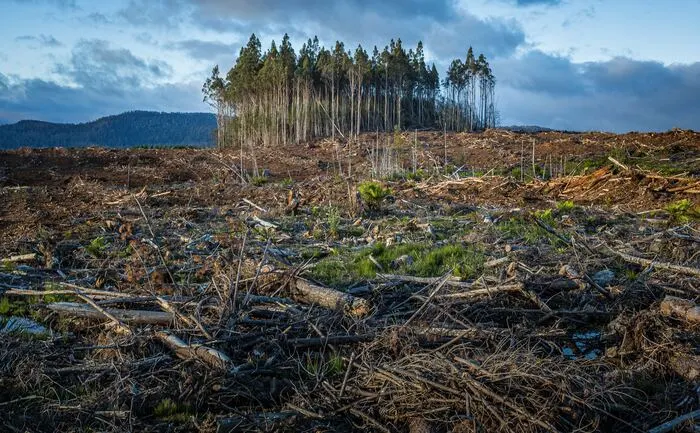Insuring Our Health in a Changing Climate
Introduction
Climate change is not just about melting glaciers and extreme weather events; it's also a significant threat to our health. As the planet warms, the health risks associated with climate change become more apparent and pressing. From the increasing frequency of heatwaves to the spread of vector-borne diseases, climate change is fundamentally altering the global health landscape. In the face of these challenges, the role of health insurance in protecting individuals and communities has never been more crucial.

Understanding Climate Change and Health
To grasp the connection between climate change and health, we must first understand the basic concepts. Climate change is primarily driven by human activities, such as the burning of fossil fuels, deforestation, and industrial processes. These activities release greenhouse gases into the atmosphere, which trap heat and cause the Earth's temperature to rise. This rise in temperature leads to a multitude of health impacts.
Health Risks Associated with Climate Change
The health risks associated with climate change are not hypothetical; they are real and already affecting communities around the world. For instance, heatwaves have become more common and severe, resulting in a surge of heat-related illnesses and deaths. According to the World Health Organization, between 2030 and 2050, climate change is expected to cause an additional 250,000 deaths annually due to heat stress, malnutrition, and the spread of diseases.
Extreme weather events have their own set of health consequences. In 2017, Hurricane Maria's impact on Puerto Rico disrupted healthcare services and led to a spike in waterborne diseases. Wildfires, such as those that ravaged Australia in 2019-2020, not only caused immediate injuries and deaths but also exposed millions to harmful air quality, increasing respiratory illnesses.
The Role of Health Insurance
Amidst these challenges, health insurance emerges as a vital tool to protect individuals and communities from the health impacts of climate change. Health insurance provides financial protection, ensuring that individuals can access healthcare services when needed, especially during climate-related health emergencies. In regions prone to extreme weather events, health insurance can be a lifeline, covering medical expenses when disaster strikes.
Health insurance companies have a crucial role to play in mitigating climate-related health risks. They are adapting their underwriting practices and risk assessment to account for climate change impacts. This includes analyzing historical data on climate-related health issues and using predictive models to assess future risks. By doing so, insurance companies can tailor their policies to provide coverage for climate-related health events.
Adapting Health Insurance to Climate Change
Health insurance companies are not the only ones adapting; governments and policymakers are also taking action. They are implementing regulations to ensure that health insurance plans cover climate-related health risks. In some regions, insurance companies are required to offer coverage for heat-related illnesses, and there are discussions about expanding such regulations to include other climate-related health issues.
Furthermore, public health initiatives are aimed at mitigating climate-related health risks. This includes strategies to reduce emissions and promote clean energy sources to combat air pollution. Public health campaigns also emphasize the importance of preparedness, urging individuals to have emergency plans in place, including knowledge of nearby healthcare facilities and evacuation routes.
Global Efforts and Collaborations
Addressing the health impacts of climate change is not limited to any single country or region. It's a global issue that requires international collaboration. Organizations like the World Health Organization and the United Nations are working to create frameworks and guidelines for climate-resilient healthcare systems.
One successful example of international collaboration is the global effort to combat malaria. Malaria is highly sensitive to climate, and many countries have joined forces to reduce the spread of the disease by implementing mosquito control measures and providing access to malaria prevention and treatment.
The Role of Individuals
While governments, health insurance companies, and international organizations play critical roles, individuals also have a part to play in insuring their health in a changing climate. Here are some practical steps individuals can take:
- Stay Informed: Stay updated on local climate-related health risks and take preventive measures accordingly.
- Adapt to Changing Conditions: Invest in measures like heat-resistant infrastructure, air purifiers, and mosquito nets to reduce personal risk.
- Support Climate Action: Advocate for policies that address climate change and promote a healthier environment.
- Prepare for Emergencies: Create an emergency plan, including access to healthcare facilities, emergency contacts, and a disaster kit.
Conclusion
Climate change is a health crisis that cannot be ignored. The health impacts, whether through heatwaves, extreme weather events, or the spread of diseases, are affecting millions of people worldwide. Health insurance is a critical tool in protecting individuals and communities from these impacts. As health insurance companies adapt to the changing climate and governments implement policies to ensure coverage, there is hope for a healthier, more resilient future.
But it's not just up to institutions and policymakers; individuals have a role to play as well. By staying informed, adapting to changing conditions, supporting climate action, and preparing for emergencies, we can all contribute to insuring our health in a changing climate. Only through collective action can we mitigate the health risks of climate change and build a healthier, more secure future for ourselves and future generations.